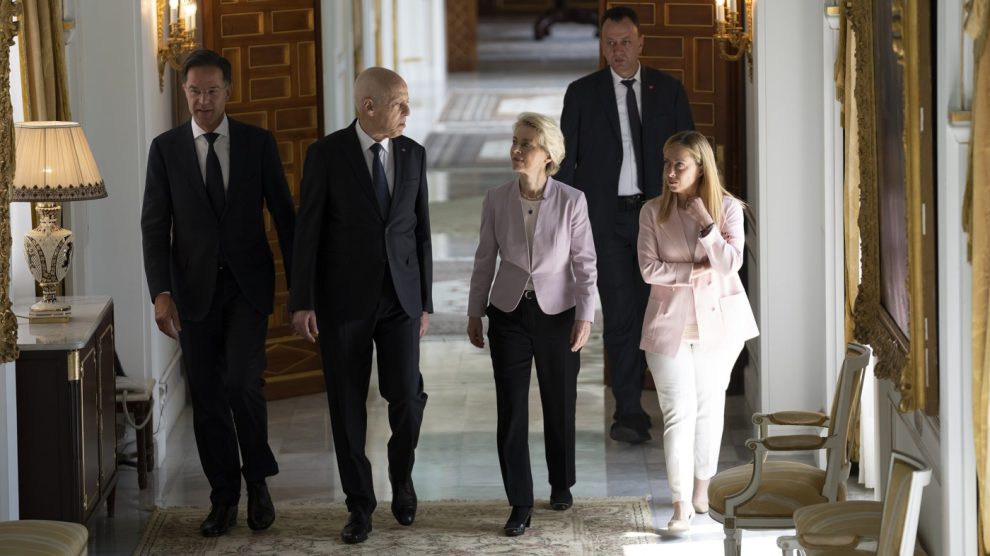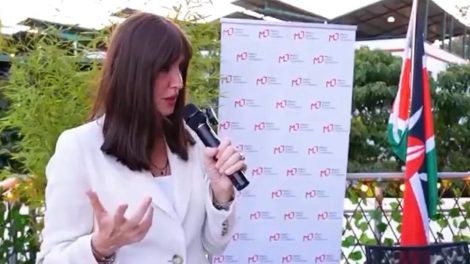The cards are in Tunis’ hands. That’s the takeaway from United States Secretary of State Antony Blinken, who discussed the Tunisian dossier (and then spoke to the press) on Monday with Italian Foreign Minister Antonio Tajani. In essence, he said, it’s up to Kais Saied’s government to present a credible proposal to the International Monetary Fund so as to unlock the nearly $2 billion loan it needs to save its economy from default.
- Nevertheless, the US head of diplomacy highlighted that Washington shares the concerns of Italy – the country that’s most actively working to mediate between the parts – and understands that an economic collapse would worsen the region’s security, with immediate repercussions on stability and migratory fluxes.
- More than half of the over 50,000 people that landed on Italian shores since the year began departed from Tunisia…
- …and as Defence Minister Guido Crosetto warned, not preventing Tunisia’s collapse for excess of red tape is tantamount to “placing [it] in the hands of China and Russia.”
Gauging the situation. Rule-of-law matters and structural reforms are at the heart of the IMF’s doubts over releasing the funds. The Tunisian President suspended the powers of government and parliament by decree in the summer of 2021 (and started imprisoning the opposition). He planned to redevelop the country out of endemic corruption, but almost two years later, the situation has only worsened.
- President Saied rejects the planned reforms as “diktats” and is resisting further progress, as he fears removing poverty-combating measures (such as subsidies) would trigger backlash, and perhaps even internal conflict.
- He also threatened to turn to the BRICS group for financial assistance if the IMF didn’t come through.
- Meanwhile, the Russian war in Ukraine triggered food and energy security issues; the economy is at a standstill; unemployment is rising, as is inflation; and Tunis, to put it in Mr Blinken’s own words, risks “falling down the proverbial economic cliff.”
The expert’s take / 1. The US remains sceptical (weighing on the IMF’s positions) because it sees no commitment from President Saied, explained Karim Mezran – Senior Fellow at the Atlantic Council’s Rafik Hariri Center – to Decode39. “We are faced with a dilemma: there is a maximalist position, which sees compliance with the conditions set by the IMF as the only way to help Tunis, [and] there is a more lax, opposite position, which considers it necessary to help [President] Saied without conditions.”
- Italy is vouching for a middle-of-the-road solution, he argued, based on the pragmatic awareness of the president’s rule over the country and the necessity to work with him. It entails immediately releasing part of the funds to stave off the risk of collapse, making further assistance conditional on certain actions, and proceeding progressively.
- The expert then argued that President Saied could perhaps consider “some steps forward, even of symbolic value, such as the release of Rashid Gannusji,” the 81-year-old leader of the Islamist political outfit Ennahda and former Speaker of Parliament who was arrested when the president curtailed the opposition’s freedom.
The expert’s take / 2. Alessia Melcangi, professor of Contemporary History of North Africa and the Middle East at Sapienza University in Rome and Non-Resident fellow at the Atlantic Council, stressed that Tunisia’s internal situation has reached a critical point. Rating agencies have downgraded its debt – which is at total risk of default. Also, even if IMF aid arrives, it could still be insufficient.
- As she told Decode39, the debt spiral triggered by President Saied is putting the economic sovereignty, he speaks of at great risk. And that also endangers his consensus, which despite a degree of support – based on a tacit coalition and the wave of popular resentment against a political class seen as corrupt – is still measured on the economic terrain.
- It was easy for him to blame Ennahda, explained the expert, allowing it to act as a lightning rod for the country’s many problems. “But the situation could quickly become untenable.”
- Even his threats about using BRICS financing are somewhat hollow, added Ms Melcangi, as China itself links its eventual aid to the release of IMF aid – which would trigger a virtuous cycle of economic recovery, allowing Beijing to invest profitably.
The bottom line: President Saied “really has few options, with Beijing having made minor and symbolic investments so far,” and the US reducing its military cooperation budget because it is unhappy with his attitude. All this “may alter the precarious balance on which the coalition of powers that supports him is based and erode public consensus if further insecurity is created,” concluded the expert.





